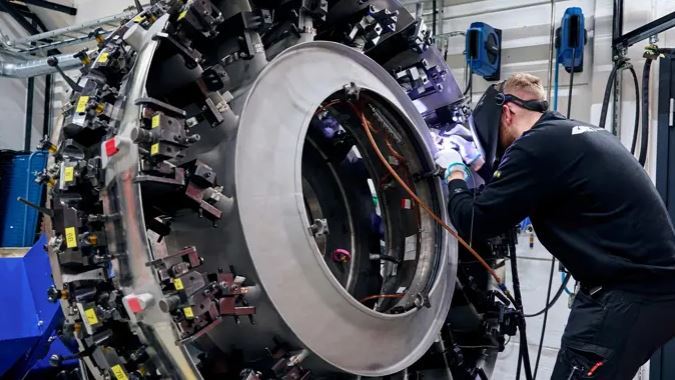Historical Parallels: Trump’s Tariffs and the UK’s Economic Challenges
William McKinley, a lesser-known US president, has seen a resurgence in attention thanks to Donald Trump, who proudly refers to him as the “tariff king”.
Trump has implemented a range of tariffs targeting imports from nations including Canada, China, and Mexico, which has worried British businesses, especially as tariffs on UK steel and aluminum have already been applied, according to the recent Make UK/BDO manufacturing outlook survey.
In the late 19th century, McKinley advocated for protectionist measures aimed at bolstering domestic industries against foreign competition, which included enacting significant import tariffs with aspirations of using America’s economic clout to integrate Canada as a US state. However, while Trump lauds McKinley as a model leader, economic historians caution that the “McKinley Tariff” incited a decade of economic turmoil in the US, characterized by a severe recession and unemployment rates reaching double digits.
The historical obscurity of McKinley may explain why many fail to recognize the consequences of Trump reviving his predecessor’s policies. Observing the economic landscape of the 1890s, where Britain was grappling with prolonged stagnation, scholars suggest the British government should draw lessons from this era. Just as then, there is concern surrounding aggressive economic policies and the need for reform to rejuvenate the UK’s competitive stance.
Under the leadership of industrialist Joseph Chamberlain, cities such as Birmingham emerged as manufacturing hubs, marked by technological innovations. Chamberlain’s proactive governmental approach promoted industrial policy while delegating more authority to local governments. His initiatives included bringing private utilities, like water and rail services, under public control, channeling profits into urban planning, infrastructure, and education.
The UK government at the time aimed to bolster the economy by fostering business modernization, focusing on mechanization and adhering to a free trade policy rather than imposing retaliatory tariffs.
Advancements in technology, availability of affordable energy, and improvements in telecommunications and transportation led to a manufacturing boom and a flourishing era for British financial services. Additionally, an influx of immigrants contributed to industrial growth by providing essential skilled labor and fostering innovation.
Ultimately, McKinley realized that trade wars might not be the avenue to achieve global dominance after various nations started shifting alliances towards Britain instead of continuing ties with the US.
The parallels to today’s situation are striking, as contemporary policy responses echo those from the 1890s, reflecting economic anxieties similar to our current atmosphere. The Bank of England has indicated that ongoing tariffs could diminish the economy and hinder growth, while the effects on inflation remain uncertain, but protectionist measures could reduce disposable income for British citizens. With a government focused on economic growth, any additional economic shocks could severely impact its primary mission.
Recent surveys have shown that manufacturers are already feeling the fallout from global trade uncertainties, leading to decreased domestic and export orders and freezing recruitment, with layoffs under consideration. On a positive note, companies are increasingly investing in automation to enhance productivity.
The saying goes that while history may not repeat itself, it often rhymes. Britain stands vulnerable in this swiftly changing trade landscape, but historical insight suggests that supporting manufacturing could provide a buffer against potential risks. Moving forward, a comprehensive, fully funded long-term industrial strategy emphasizing advanced manufacturing is essential to tackle the generational challenges we face.
This strategic shift must involve a unified approach across government departments, complemented by clear ten-year goals, an ambitious skills development plan, competitive energy prices for industries, and a tax system that encourages investment.
Stephen Phipson serves as the chief executive of Make UK.




Post Comment